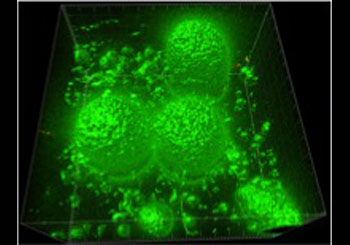Making new antibiotics that destroy biofilms
Biofilms form when microorganisms grow together on a surface. Biofilms are very resistant to treatment and are responsible for two thirds of all infections. Because our society is running out of new antibiotics it is important to make agents that destroy biofilms. A research team led by Bob Hancock developed new peptides that are resistant to the host and bacterial proteases that are prevalent during infections. These newly developed peptides destroy biofilms caused by all of the highly resistant bacteria in our society at low concentrations. Furthermore these molecules worked to enhance the action of currently prescribed antibiotics and were able to clear infections in invertebrate models of infection. These peptides are a promising new tool for combating highly antibiotic resistant chronic infections.
Dr. Robert Hancock is a Professor in the Department of Microbiology & Immunology and Canada Research Chair in New Anti-infective Strategies.
de la Fuente-Núñez C et al. D-Enantiomeric Peptides that Eradicate Wild-Type and Multidrug-Resistant Biofilms and Protect against Lethal Pseudomonas aeruginosa Infections. Chemistry & Biology
